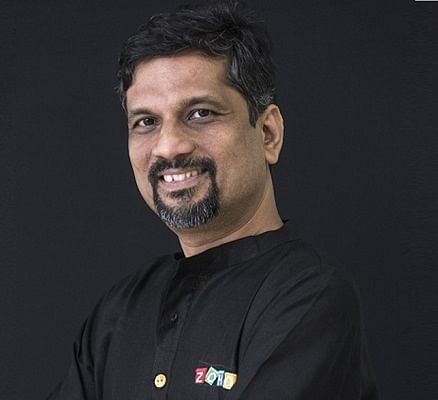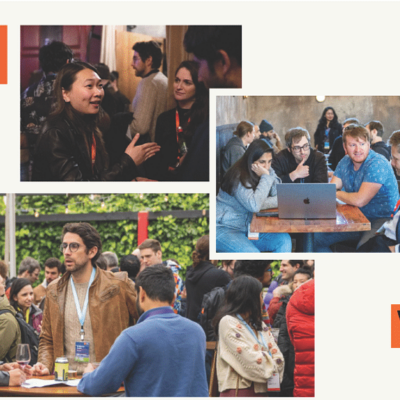For 24 years, Sridhar Vembu has spearheaded one of the most popular software and CRM companies in the world, Zoho Corp, which is both bootstrapped and profitable. While there is speculation about how much revenue it makes, Sridhar puts this to rest when he says Zoho crossed $100 million in revenue in 2010. He says one can “work out the current numbers based on market growth”.
[Zoho is a private company in the US and not mandated to reveal its financial numbers. However, it is widely acknowledged that its topline is in the vicinity of $500 million.] These numbers, however, are nothing when compared to the plans that Sridhar has for Zoho in the coming years.
For one, the company, which counts Salesforce among its biggest rivals, is now reportedly looking to expand operations into America’s heartland and Mexico. The famously frugal founder also has a social mission for Zoho. The company grows food in its farms, in Tirunelveli, and serves its employees in Chennai. It also trains young graduates from smaller towns to make them employable and absorbs the best of them.
A simple man, the 51-year-old still drives an old Toyota. He dresses modestly, reads Indian philosophy, and will helpfully tell you that the fastest way to travel across a city is using a local train or metro and not in a cab hailed via an app.
When founderstorys caught up with Sridhar at Zoho’s US headquarters in the Bay Area recently, he spoke his mind about how entrepreneurs need to resist the allure of raising money from VCs who are just looking at building shareholder wealth, rather than building institutions. He also pointed out the danger signs of a looming recession and what he wishes startups would do for India.
founderstorys: While we celebrate the exits of Flipkart and other startups, not many employees in the startup world make money. How do you read India’s startup journey?
Sridhar Vembu: {Chuckles} Capital is a funny thing. If you are a tea seller in India, you would know how to manage money. Remember, it is not easy being an entrepreneur. There is a lot of misery before glory.
If you are an entrepreneur reading this, are you ready to be asked some difficult questions? If the world is “indifferent” to you, can you handle people who ask you tough questions about your business?
Unfortunately, we have glorified the startup world even before startups learn to build a business. If you are doing business only in India, you have to understand it is a very small economy for startups in the B2B space. There are very few corporations who are willing to bet on the business value that startups bring.
I have been asking myself this – what does India make that can be called Indian? We don’t make MRI machines, cameras, cell phones, bullet trains, and so forth. We remain dependent on other countries for the entire solution. While our IT companies may be providing software to some of these products, I am interested in nation-building as a concept. It is important to explore how we are doing it. I know that a lot of things are being done for the first time in India, and the journey itself is rewarding if you are a young person building a company.
FS: Why, then, are you critical of the ecosystem?
SV: I have not raised any money to build my business, but it is important to raise capital to build a business. However, I often blame the “financialization” of the system. It created an illusion of immediate success and thereby an unsustainable ecosystem. Even banks are giving loans without any measurable metrics.
All you have to do is pull the non-performing assets (NPAs) in our banking system, and I don’t blame India alone in this. It happens globally. The financial crisis in 2008-09 was a classic problem that we seem to have forgotten. There is a crisis coming again. There are so many ‘unicorns’ being created every month; there are 150 in the US alone.
But most deals neither have the sustenance in business nor can they survive in the long run. It helps only two people make money – the VCs and the founders.
Finance is the most seductive mistress and several startups have been seduced by it. It is like a drug and its addiction destroys the patient.
The central banks too are to be blamed, and I am one of the 10,000 people who know the bubble they are creating is going to burst again. The crisis is inevitable. In India, the dollar has flooded the market and we have gladly taken it. When the crisis hits, it will be the startup ecosystem that will be hit in a big way, and only businesses with fundamentals will survive, as we are living on short-term liquidity.
FS: Are these lessons based on your vast experience, and hence the warning?
SV: I have seen two or three financial bubbles in my lifetime. The US printed money to stabilise the economy, but that will have a long-term impact. No economist wants to admit that the way capital is deployed currently is going to destroy the world. I keep myself away from these things as the world does not want to question the illusion of capital.
Back in 2001, when the internet and the telecom bubble burst, we were still Adventnet and had not yet rebranded the company (to Zoho). I had to sack 20 people. Believe me, this was the worst experience of my life, and I vowed then that I would never repeat this again.
In 2000, a VC offered us money. We had a term sheet with a valuation of more than a $100 million. This valuation itself frightened me and I was worried whether I would meet their expectation in eight short years. That was their expectation, not mine. I eventually said no to that person who offered me that valuation. I am glad I did. A year later, in 2001, we were down to four vendors from 300, and the telecom meltdown happened.
We reinvented our business model and sold our software in China and Japan. Our company began to work with the likes of Hitachi, Fujitsu, ZTE and Huawei. This helped us grow, and I kept reinvesting in R&D. I also started looking at how technology could change the world, instead of worrying about valuations and meeting others expectations.
Startup founders should learn not to impress others and learn to make a business work and work with clever employees.
FS: What advice do you give entrepreneurs?
SV: Look at India, we have so many problems. Can’t our clever technology founders set up companies in smaller towns and hire locally? They can train individuals at a very low cost, and I can promise you it will succeed. We have tried this in Zoho and it works. Take graduates from engineering colleges and make them work. These young people have very few wants and are happy to work in places very close to their hometowns. Zoho has started a programme where we train young graduates for three months and give them a stipend. After three months, we employ at least 50 percent of the kids who are able to learn fast.
I must quote Arun Shourie who talks about pain in one of his books. Pain is always around, the suffering is “optional.” This would be the most profound thing I have learned, and one has to learn to endure. I have learnt to carry life with grace and that’s all I can tell startup founders or anyone else.
For me, the company is my religion and money is not the satisfaction. My business has given me the means to solve social problems. Business is public service through private means.
Unfortunately, many entrepreneurs view that the world is only about themselves and they do not want to build institutions. I look up to what people like Azim Premji and the Tata Group have done. I am against (the) “financialisation” which looks at companies and people like commodities.
Founders have to understand they are signing on to many sociological consequences with the money that they raise. When they raise money from people who do not believe in the long run, the founders are not building a company, but are building wealth for shareholders. What about their employees? Imagine me selling Zoho. What would happen to the employees who believe in what we, as a team, have built?
Finally, the financial crisis. The central banks have created monetary policies that will upset all social relations. India is now in the middle of this consumer growth, which will eventually be like the consumerism in the US. And then money mediates the way we make use of our time instead of building businesses that can change lives. I believe we have forgotten all moral dimensions.
I must also warn you that the current generation, especially people born after the year 2000, have not witnessed the consequences of a financial meltdown. Hence, not just India, no any nation should alienate its people. Young people become shallow because they fear they are going to miss out in life. So, it is time to build great relationships.
Go set up businesses in smaller towns, grow the local economy and build strong value-based relationships with people willing to work towards a common goal. This will truly make you successful. In my 30 years in the business, I have seen that inequality has only gone up. Only entrepreneurs can change the world and its current outlook.





